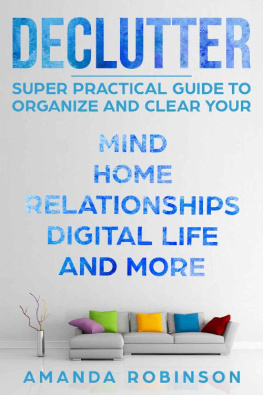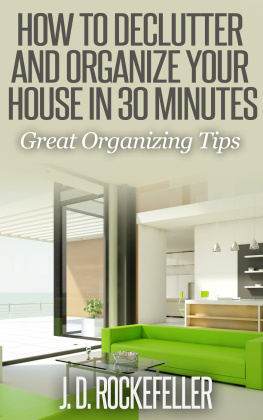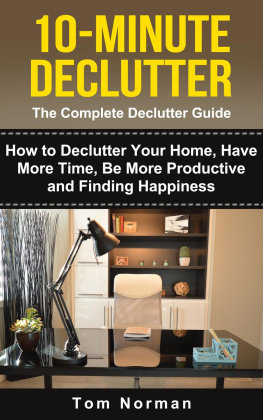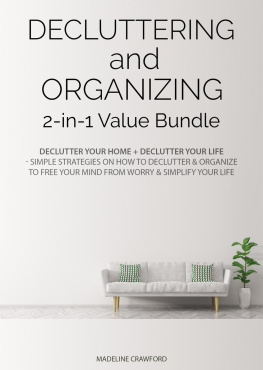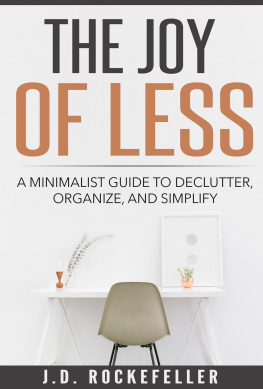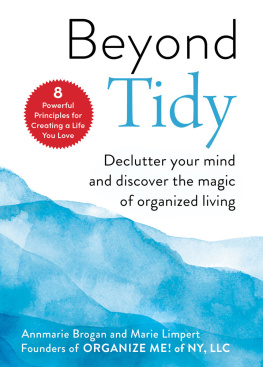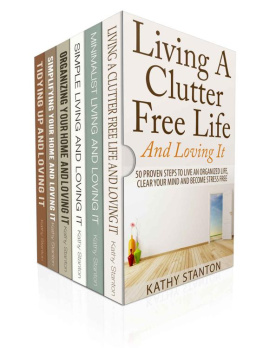All rights reserved.
Introduction
Imagine the world as a completely different place. Instead of worrying about your options for breakfast, youre worried about what youll find for every meal of the day. Instead of worrying about whether your boss will fire you, youre worried about whether a lion is stalking you in the bushes. That hurricane coming your way is almost guaranteed to kill you rather than simply rip a few shingles off your house.
We view each of these scenarios completely differently, but our subconscious doesnt. When humans reacted to dangers during prehistoric times, those dangers were physical ones. They were temporary, and human reacted to them with a flight, fight, or freeze response. Our bodies still use this response, but instead of our stresses being temporary physical ones, most of them are ongoing mental events.
When were stressed out, our adrenal glands send a burst of adrenaline into our bodies, which increases the blood flow to our muscles and raises our heart rates. Our livers release more glucose to give us fuel, and our bodies produce cortisol, which many physicians and scientists refer to as the stress hormone.
Cortisol raises our blood pressure, which lets our brains and our muscles obtain more oxygen, as well as use fatty acids as a fuel source. Once the threat has passed, the response shuts down and the bodys functions return to normal.
Today, our bodies release cortisol when we confront a stressor, just as they did thousands of years ago. However, we have more stressors in our lives, and we cant control most of them. Were not only dealing with physical stress but emotional stress, too.
The pressure of performing well at work, bringing home a paycheck, and managing our hectic schedules (with or without children) contributes to our increasing stress levels. All types of worries can trigger our bodys flight, fight, or freeze response, such as anxiety about performing at work, bullying in our workplaces, or concerns about whether we can pay our bills on time.
These regular doses of cortisol arent good for our bodies. They weaken the immune system, damage brain cells, and lead to cardiovascular disease. In addition, cortisol affects our bodies at the cellular level, which makes us age faster.
In short, mental clutter that keeps you awake at night, makes you break out into a sweat whenever you think about it, and distracts you from the important things in life can make you sick, damage your body, and make you age faster!
Lets look at how mental stress makes us unhealthy at a cellular level.
Everyone has little protective caps, known as telomeres, at the ends of their chromosomes. Telomeres indicate our biological age. The shorter ones cause aging, but theyre a result of the aging process. Each time a cell splits, it loses some of its telomeres.
Telomeres can be replaced by an enzyme known as telomerase. However, our bodys supplies of telomeres decrease when were exposed to chronic high levels of cortisol caused by stress. Therefore, at a cellular level, chronic stress causes accelerated aging.
Your brain is constantly looking for threats to your survival. When your body is exposed to years of chronic stress, you see effects that are beyond the normal aging rate. This makes your telomeres look like theyre from a much older individual.
So, if mental stress is replacing physical stress and our telomeres are suffering for it, whats making us mentally stressed?
The average person in a developed country consumes almost three times the amount of information the typical person in the 1960s consumed. The New York Times reported that the average computer user checked forty websites per day and switched programs on their devices up to thirty-six times per hour.
The amount of information were consuming on a daily basis is phenomenal, but its also not very good for our mental health. At one point, there was only a screen in our living rooms. Now theres a screen just about everywhere even in your pocket! You can hold them while youre waiting at the doctors office, while youre in the bathroom, or even when youre driving.
The overabundance of digital overload, items on our schedules, and overall noise in our lives is making us age faster, and its just not a fun life to live.
Minimalism teaches us not that we must live without an inkling of a possession, but instead that we must scale back on all the areas of our lives where were obtaining excess. Whether were dealing with an excessive number of things to do, an excessive amount of time spent in front of a computer or cell phone, or an excessive number of things around our homes, overload causes stress. And minimalism can help. Lets see how in the following chapters!

Decluttering of MIND and THOUGHTS
A world full of worries, stress, projects, and errands to endure inflicts chaos and clutter onto our minds. Sometimes, we cant seem to find the calm that we so desperately need. Many people seek books and articles about decluttering their physical lives, but often what we need is help decluttering our minds and thoughts, not whats around us.
Honestly, if anything needs to be decluttered, its usually our minds rather than our physical lives. Its a daunting task; I mean, how do you declutter your thoughts and mind? Those are things you cant possibly control, right? Actually, you can control your thoughts and your mind.
Our minds arent like inboxes through which we can sort and act upon an email. Nor are they like a closet that needs a rifling through. However, they can be controlled. Yes, the brain is a confusing, complex organ that is the core of our very being, but decluttering it doesnt have to be complicated.
You can take a few simple actions to declutter your mind. While you may have read or learned about these things already, youre obviously not getting them to work if youre still looking for ways to declutter. Choose a few of these actions and try them this week.
- Breathing exercises.
Breathing exercises might seem simple, but theyre very effective. Think about it. Your breaths are the very essence of your life force, and if you can get them under control, you can get just about anything under control!
Try this.
Take a few deep breaths, then focus on your breathing for just a few minutes. Concentrate on every breath as it enters your body, goes down your throat, and flows into your lungs. Focus on breathing out slowly.
This has a calming effect on your body, especially if you keep returning your attention to your breathing when your mind starts to wander. Breathing lets your other thoughts float away. Some people call this meditation, but you dont have to call it that. Its just a simple breathing exercise.
- Write it down.
If you have a ton of things on your mind, try writing them down on paper and getting them off your mind. This keeps your mind from filling with everything you must do and remember. Then you have more time to think about ways to declutter your physical life!
- Identify the essentials.

